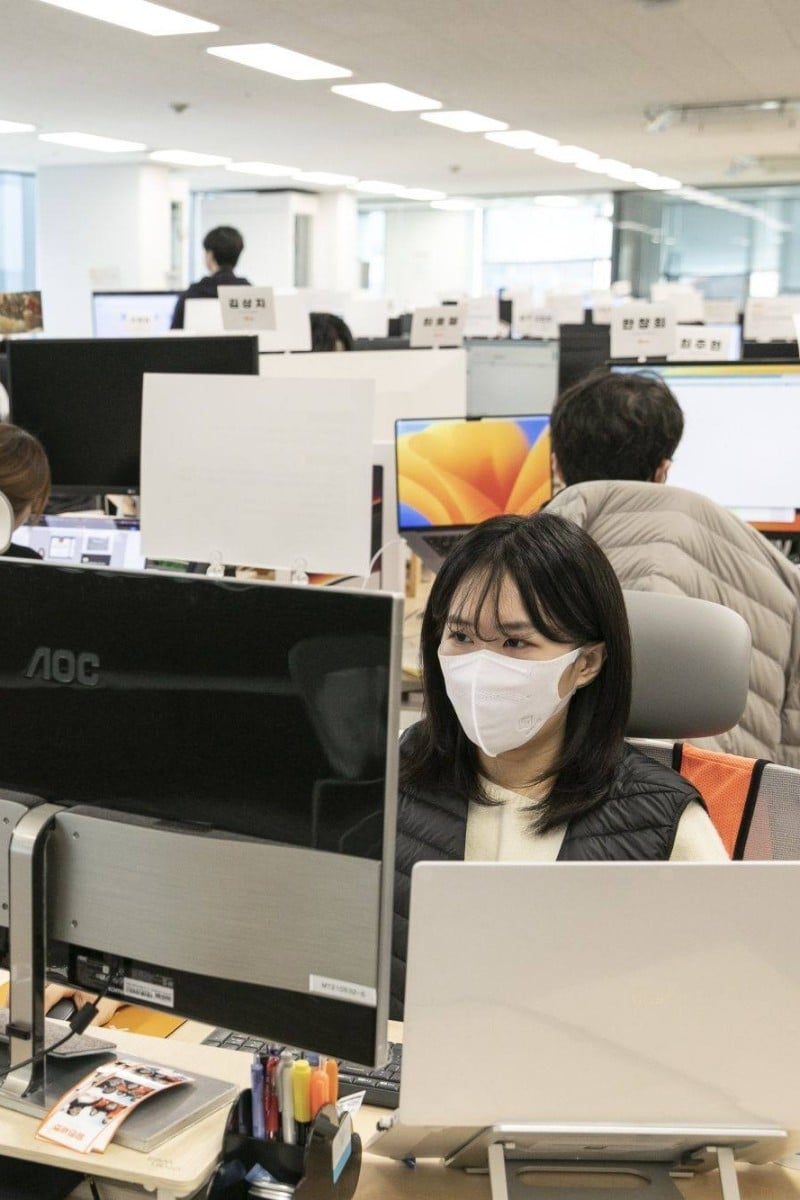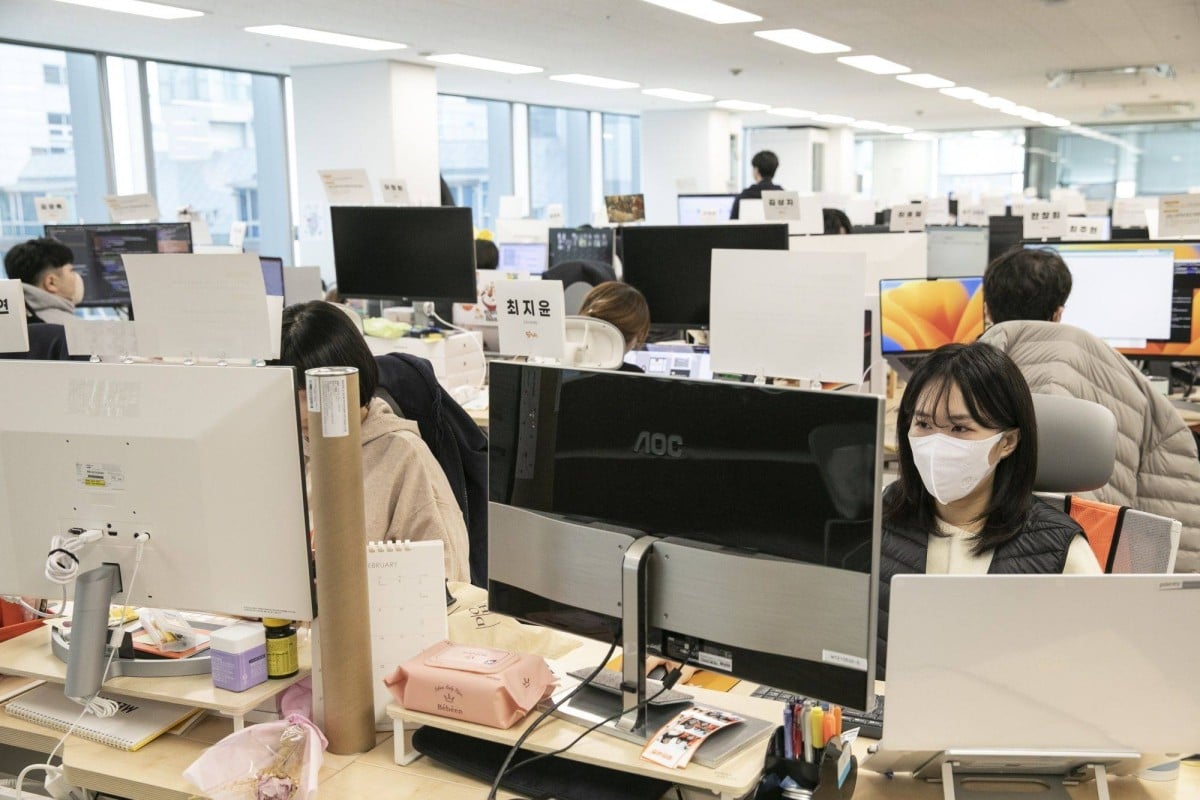
The Lens: South Korea’s president faces backlash for 69-hour work week proposal
- Exhausted workers criticised the campaign aimed at tackling the country’s dwindling labour force and low birth rates
- Each week, we choose a picture from the news and provide questions to help you dive deeper into the topic
 People in South Korea work some of the longest hours in the world and don’t take enough annual leave. Photo: Bloomberg
People in South Korea work some of the longest hours in the world and don’t take enough annual leave. Photo: BloombergHave some thoughts on this issue? Send us your response (no more than 300 words) by filling out this form or emailing yp@scmp.com by March 22 at 11.59pm. We’ll publish the best response next week.
Observe and read
-
Why are South Koreans complaining about their working hours?
-
Based on the news snippet, what issues does the bill hope to address?
News snippet
Staff writers and Sue Ng
South Korea’s President Yoon Suk-yeol has back-pedalled on his push to increase weekly working hours after the campaign aimed at tackling the country’s dwindling labour force and low birth rates faced widespread backlash from exhausted citizens.
Last Tuesday, Yoon ordered that the labour ministry redraft the bill to better reflect public opinion, barely a week after it was put up for a 40-day public consultation period before being voted into law.
The bill, if passed, would raise the weekly maximum work hours from the current 52 to 69, nearly twice that of France’s 35-hour work week.
South Koreans already have some of the longest working weeks in the world. According to the liberal opposition Democratic Party of Korea (DPK), workers put in 1,900 hours per employee annually, 300 more than the average given by the Organisation for Economic Co-operation. While they are legally entitled to 15 days of annual leave, they reportedly manage to consume only 10 days.
Some 500 workers reportedly die from overwork every year in South Korea, according to the umbrella Korean Confederation of Trade Unions.
In 2018, the nation’s previous liberal government cut the weekly maximum of 68 hours to 52, which included a standard 40-hour work week and an additional 12 hours of overtime, in order to combat the country’s challenging work culture.
The Yoon administration instead suggested employees be allowed to work more hours per week in exchange for longer holidays later on in the year.
But the bill drew criticism from various sectors including women’s groups, which said extending the working hours would send already low fertility rates plunging.
Medical experts also warned that working longer hours followed by a lengthy holiday would be harmful to workers’ health.
Research and discuss
-
What might be the pros and cons of extending working hours?
-
To what extent do you agree with Yoon’s push to increase working hours?
-
What other alternatives could combat the country’s dwindling labour force and low birth rates?
Thoughts from last week
Clarisse Poon, 13, St Paul’s Co-educational College
The Greek government needs to take responsibility after the country’s deadliest train accident when a head-on collision of two trains running on the same track killed 57 passengers, many of them university students.
While human error on the part of the station master does appear to be the direct cause of the accident, the government still needs to step up, as it failed to upgrade its railway system and conduct regular maintenance.
There should have been an electronic monitoring and warning system, but it only worked sporadically. It did not prevent the tragedy, even though the two trains had been running on the same track for quite some time before the collision. The warning system would have picked this up if it had been functioning normally.
The station master holds the most responsibility and he has been arrested and charged with negligence. However, news reports state he was a relatively new station master without adequate training and was assigned to work during the night without supervision from an experienced senior. This is a failure on the part of the railway authorities, who must adequately train and supervise their staff to ensure the trains run safely and smoothly.
Furthermore, the fact that ADEDY, the public sector union of Greece, joined the strike in protest of the incident indicates that this is not a one-off but the result of long-term negligence.
More than 60,000 protest in Greece after deadliest train accident which killed 57 people